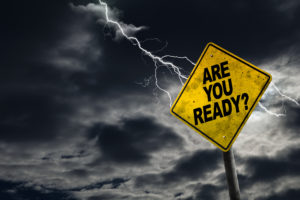It’s easy to forget about the air conditioner when it’s not running daily to keep you comfortable. During the offseason, consider outdoor HVAC unit protection to keep it in good shape so it’s ready to go next spring. Heat pump users, especially, need to stay on top of the outdoor condenser to get the most efficient and effective heating from their units.
Why It Matters
The outdoor condenser contains the compressor and the condensing coil, both vital parts of any air conditioner or heat pump. The compressor changes the pressure of the refrigerant to make it cold enough to remove the excess heat from your home’s air. The refrigerant moves from the indoor air handler into the condensing coil, where a large fan blows away the heat it collected indoors.
When leaves or any other kind of vegetation block the air amount of air going through the condenser, it takes longer for the refrigerant to cool. It drives up energy bills and increases the time it takes to cool your home. Longer running times create excessive wear on the compressor, your system’s most expensive part.
Condenser Upkeep
Rake leaves away. Keep an eye on the amount of leaves building around the condenser and rake them away as they collect. Bag them, along with other landscaping debris, to keep them from blowing back.
Trim overhanging tree branches. Remove any branches that hang over the condenser or nearby by as part of outdoor HVAC unit protection. Throw a tarp over the condenser as you work to prevent sawdust and leaves from falling inside it.
Cover it. If you don’t plan to use the A/C or heat pump all winter, cover it for the season. You can find covers at home improvement centers or hardware stores. Be sure you check it periodically to make sure rodents aren’t living inside.
It’s important to provide outdoor HVAC unit protection from leaves even in the off-season to keep this appliance clean and unobstructed. To learn more, contact Air Assurance, providing HVAC services for Broken Arrow homeowners.
Our goal is to help educate our customers in the Tulsa and Broken Arrow, Oklahoma area about energy and home comfort issues (specific to HVAC systems). For more information about other HVAC topics, call us at 918-217-8273.


